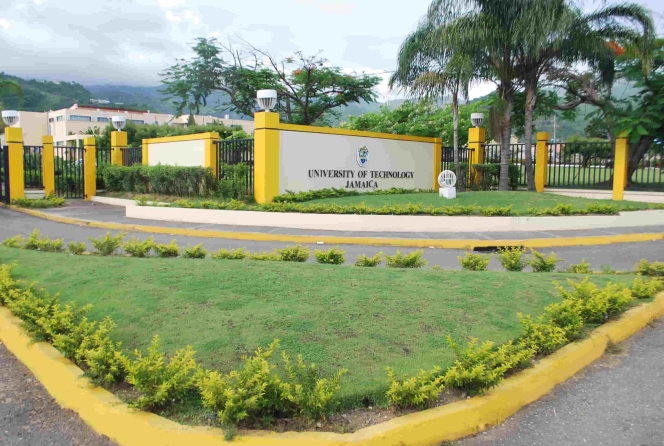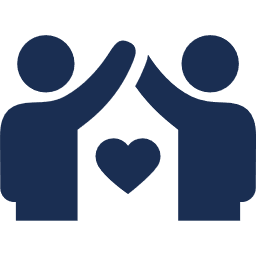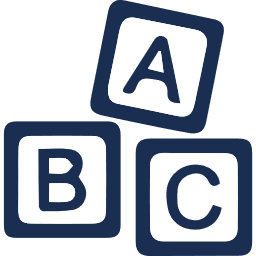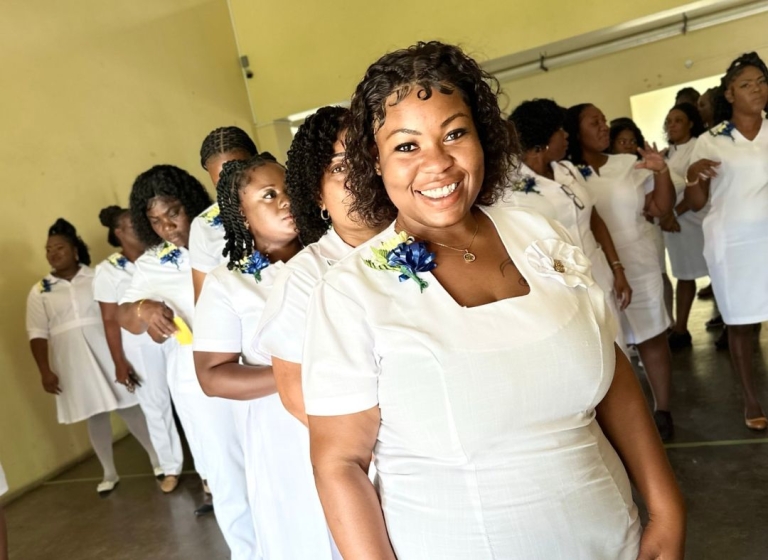Food, shelter, and clothing: three necessities of life which Mustard Seed Communities strives to provide to the world’s most vulnerable populations. These are the things that nourish us, protect us, and allow us to take ownership of our own individuality, as every person ought to do. Yet, what happens when issues run deeper, and we need care that requires trained minds and hearts to be with us every day? What happens when we need health care, but society lacks an abundance of accessible learning opportunities to teach us how to care for ourselves and others?
This is the growing question that Mustard Seed set out to nourish in 1992, when founder Msgr. Gregory Ramkissoon observed high quality care for people with disabilities at the University of Liverpool. He thought of those dire needs which MSC pursued and wondered what could happen if high level training of MSC’s caregivers helped address societal injustices as well. The many children and adults with disabilities in MSC’s care needed trained nurses who understood their conditions and addressed their unique needs. It was in the hands of MSC to bring this level of training to the people motivated to bring love and respect to its population – young men and women who rarely had access to higher education. Here was the seed of a program that, today, hosts branches upon branches of success stories: the partnership between the University of Technology (UTech) in Kingston, Jamaica, and Mustard Seed Communities.

Georgia is a caregiver at MSC apostolate Jerusalem! in Spanish Town, Jamaica who has been working with the residents for over eight years. Growing up, Georgia experienced a lack of care in her own community but never lost her resilience and hope for a bright future. She developed a passion for working with teenagers living with HIV who had no one else to care for them and vowed to be that person to step up and assist young adults in their transition to independence. “I put myself in their shoes to care for them,” Georgia said. “That’s why I wanted to study nursing.”
So, she did.
In 2021, Georgia graduated from MSC’s Long Distance Learning program, becoming one of over 200 Jamaican caregivers to complete a formal training program in the past 23 years. “I’ve never attended a graduation ceremony for myself; it was always for others,” Georgia said. Now, her graduation alongside 43 other caregivers empowers her to deliver care to the residents that is undoubtedly exceptional.
Empowering women from Jamaica’s inner cities in the delivery of care to their communities is a major focus of MSC and UTech’s partnership. Their empowerment, on top of their own intrinsic motivation and intelligence, stems from their exposure to tertiary academic institutions which would otherwise be out of reach for them. The program builds the self esteem of MSC caregivers as they become increasingly more confident in their ability to genuinely care for residents with disabilities and HIV. Ultimately, the quality of care offered to the residents of MSC apostolates is improved as UTech’s training evolves and thrives.

Students enrolled in UTech’s program spend six months immersed in learning alongside a cohort of about 20 peers from all around Jamaica. Today, classes cover a wide range of topics, spanning from nutrition, medical technology, physical therapy, language stimulation, and specifics such as the conditions they will likely encounter while working as a caregiver at MSC. Classes occur remotely and on the campus of UTech, with practical studies of rehabilitation with residents. Students volunteer and learn to provide rehabilitation to residents of Sophie’s Place in the Shelly-Ann Fraser-Pryce Assessment Centre for Children before completing the program with final exams and a graduation ceremony.
The program’s organizational success and inclusion has transformed over time, growing and adjusting to meet the changing needs of residents as they grow older. Decades of specialized dedication created the right environment for this learning to occur, adapting to advances in the scopes of technology and the MSC mission.
Monsignor Ramkissoon’s vision for the caregiver training program came to its first fruition in 1998 with the aid of Drs. Trevor and Elizabeth Hope. MSC’s initial long-distance training featured simple and broader questions through Stewart’s Hospital in Dublin; however, it soon became clear that with the abundance of variation in residents’ conditions and disabilities, a more involved program was necessary to uplift caregivers.
Enter Dr. Cheryl Hettman, educator and nurse. Hettman discovered the MSC mission program with a group of her students from the Franciscan University of Steubenville in 2002, and by 2003 they were on the ground in Jamaica. The experience was “transformative and profound,” Hettman said, and she immediately knew that she had found a family in which she would belong for years to come.

The medically-trained observations of Dr. Hettman and her students gave rise to a new belief in the ability of MSC to be a top-quality healthcare provider, and Hettman committed to its materialization. Her vision included a formalized academic program that would cover the theory and practice behind day-to-day healthcare at the apostolates. With UTech’s partnership firmly established, MSC connected Dr. Hettman with Miss Ivy Limonius of Public Health Nursing to further advance the program.
By 2008, the technology became available to MSC to implement the revised program. Dr. Hettman, by that time a professor at California University of Pennsylvania, earned a grant to purchase equipment to make long-distance learning a reality for the caregivers in Jamaica; subsequently, MSC apostolate Mary’s Child added a classroom to its list of features. The new computers and, eventually, improved Wi-Fi enabled Jamaica’s caregiving program students to learn lessons taught by Dr. Hettman in Pennsylvania in real time. What began as a short program grew into an intensive 12 week syllabus of nursing lessons, followed by two weeks working on-campus at UTech.
2020, of course, brought its complications and its blessings with the Covid-19 pandemic’s lockdowns. Classes resumed in 2021 and were taught in an all-online format at UTech, and this eliminated the sometimes five hour commute for caregivers to get to Kingston for classes. The program has been administered online since.
Moving forward, the vision for MSC’s UTech program includes a transformative healthcare network that allows all professors, students, caregivers, and mission volunteers to communicate about the needs of residents at the apostolates. This would achieve a more cohesive and effective program, enhancing caregivers’ abilities to provide specialized therapy and care.
Food, shelter, and clothing: three necessities of life which Mustard Seed Communities strives to provide to the world’s most vulnerable populations. These are the things that nourish us, protect us, and allow us to take ownership of our own individuality, as every person ought to do. Yet, what happens when issues run deeper, and we need care that requires trained minds and hearts to be with us every day? What happens when we need health care, but society lacks an abundance of accessible learning opportunities to teach us how to care for ourselves and others?
This is the growing question that Mustard Seed set out to nourish in 1992, when founder Msgr. Gregory Ramkissoon observed high quality care for people with disabilities at the University of Liverpool. He thought of those dire needs which MSC pursued and wondered what could happen if high level training of MSC’s caregivers helped address societal injustices as well. The many children and adults with disabilities in MSC’s care needed trained nurses who understood their conditions and addressed their unique needs. It was in the hands of MSC to bring this level of training to the people motivated to bring love and respect to its population – young men and women who rarely had access to higher education. Here was the seed of a program that, today, hosts branches upon branches of success stories: the partnership between the University of Technology (UTech) in Kingston, Jamaica, and Mustard Seed Communities.

Georgia is a caregiver at MSC apostolate Jerusalem! in Spanish Town, Jamaica who has been working with the residents for over eight years. Growing up, Georgia experienced a lack of care in her own community but never lost her resilience and hope for a bright future. She developed a passion for working with teenagers living with HIV who had no one else to care for them and vowed to be that person to step up and assist young adults in their transition to independence. “I put myself in their shoes to care for them,” Georgia said. “That’s why I wanted to study nursing.”
So, she did.
In 2021, Georgia graduated from MSC’s Long Distance Learning program, becoming one of over 200 Jamaican caregivers to complete a formal training program in the past 23 years. “I’ve never attended a graduation ceremony for myself; it was always for others,” Georgia said. Now, her graduation alongside 43 other caregivers empowers her to deliver care to the residents that is undoubtedly exceptional.
Empowering women from Jamaica’s inner cities in the delivery of care to their communities is a major focus of MSC and UTech’s partnership. Their empowerment, on top of their own intrinsic motivation and intelligence, stems from their exposure to tertiary academic institutions which would otherwise be out of reach for them. The program builds the self esteem of MSC caregivers as they become increasingly more confident in their ability to genuinely care for residents with disabilities and HIV. Ultimately, the quality of care offered to the residents of MSC apostolates is improved as UTech’s training evolves and thrives.
Students enrolled in UTech’s program spend six months immersed in learning alongside a cohort of about 20 peers from all around Jamaica. Today, classes cover a wide range of topics, spanning from nutrition, medical technology, physical therapy, language stimulation, and specifics such as the conditions they will likely encounter while working as a caregiver at MSC. Classes occur remotely and on the campus of UTech, with practical studies of rehabilitation with residents. Students volunteer and learn to provide rehabilitation to residents of Sophie’s Place in the Shelly-Ann Fraser-Pryce Assessment Centre for Children before completing the program with final exams and a graduation ceremony.
The program’s organizational success and inclusion has transformed over time, growing and adjusting to meet the changing needs of residents as they grow older. Decades of specialized dedication created the right environment for this learning to occur, adapting to advances in the scopes of technology and the MSC mission.
Monsignor Ramkissoon’s vision for the caregiver training program came to its first fruition in 1998 with the aid of Drs. Trevor and Elizabeth Hope. MSC’s initial long-distance training featured simple and broader questions through Stewart’s Hospital in Dublin; however, it soon became clear that with the abundance of variation in residents’ conditions and disabilities, a more involved program was necessary to uplift caregivers.

Already, says Nicola, a graduate of the program, “UTech and Mustard Seed taught me holistically about nursing, caring for the residents, and ourselves,” and the healthcare network would add a new layer of forward-thinking and address needs as soon as they appear.
“Graduating from UTech was my dream come true,” Nicola said. “The experience of long-distance learning pushed me and motivated me – it took all things that were inside of me to accomplish.” Now as a caregiver with a program certificate in disability management, Nicola works at Matthew 25:40, a MSC home for young men living with HIV, and finds inspiration in the stories of residents who show passion and hopefulness every day.
Witnessing the caregivers’ drive to learn and change lives, including their own, is inspirational to the program’s leaders as they find new ways to improve it each year. “The Long Distance Learning training program provides the caregivers with the various skills and knowledge added to their practical nursing certification, and enables them to carry out their duties and responsibilities in a more effective way,” Mrs. Carol Hutchinson, Supervisor of the university’s Mustard Seed Centre, said at this past year’s graduation ceremony. Additionally, they are “empowered to better care for themselves and their families,” Dr. Hettman said.
Education and empowerment are the two forces driving MSC’s partnership with UTech. It’s with a passionate and knowledgeable caregiving network that the kind of care residents deserve is administered each day.
This is who it all comes back to: the residents. We can best respect and honor their dignity by not only providing food, shelter, and clothing but also healthcare, family, and love.
 Jamaica
Jamaica
 Community Development & Outreach
Community Development & Outreach
 Education
Education
